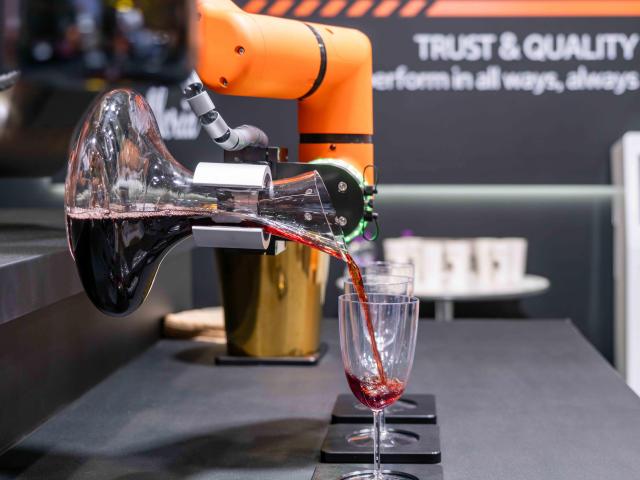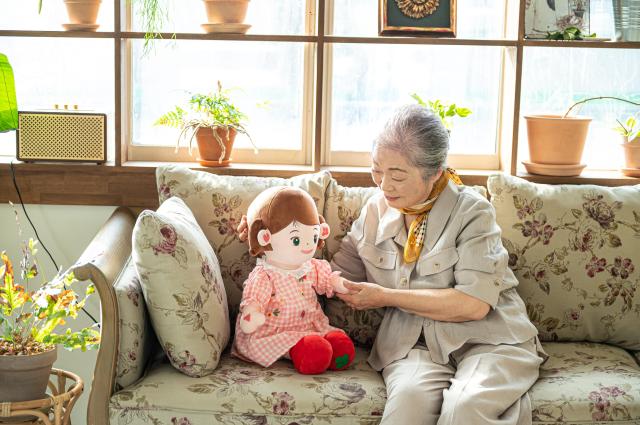
SEOUL, March 27 (AJU PRESS) -- At the "Smart Factory + Automation World (SFAW)," an annual tech event held in Seoul, the cooperative robot business wing of South Korea's Hanwha Group has showcased a robot sommelier that can decant wine, a crucial step for separating clean wine from sediment. By integrating artificial intelligence with various types of robots, the company aims to automate processes within the food tech sector.
Decanting is the process of removing unnecessary sediment from wine by pouring wine into another container, ensuring not to disturb any sediment settled at the bottom. This helps improve the taste of the wine by allowing its tannins to mix with oxygen, making it more enjoyable to drink.
Hanwha Robotics displayed its robot sommelier that rotates 40 times per minute, just like a human sommelier. This rotation process is necessary for mixing the wine with oxygen "We have been focusing on integration of artificial intelligence and robot," Hanwha Robotics' marketing planning team manager JM told Aju Press on Wednesday. She added that another one of its robots is being used to cook fish-shaped pastry filled with bean paste at a bakery in eastern Seoul.
A total of 450 companies from nine countries will participate in the annual tech event held in Seoul from March 27 to March 29. Along with collaborative robots, exhibitors are displaying many innovative factory automation solutions at the COEX Convention & Exhibition Center located in Gangnam District, the fashion and finance hub of Seoul.
Promising South Korean tech firms are displaying smart manufacturing solutions. Aidin Robotics exhibited PanoRadar, a safety radar sensor capable of detecting obstacles up to a distance of 9 meters (29.5 feet). When attached to a collaborative robot, the sensor aids in maintaining safe operations by detecting people and objects in all directions.
POSCO DX, an IT and engineering wing of South Korea's steelmaker POSCO, showcased its deployment of digital twin technology across factory settings, spanning both the steel industry and secondary battery material production. A digital twin is a virtual clone of an object or an infrastructure. Digital twins are frequently used as testing grounds for new technologies or other elements to find out the results of real-life situations.
Overseas firms, including German technology conglomerate Siemens and Japan's Mitsubishi Electric, also participated in the event. SFAW is one of South Korea's largest business-to-business (B2B) exhibitions for digital manufacturing solution developers. More than 70,000 people are expected to visit the event spot this year.
Copyright ⓒ Aju Press All rights reserved.





View more comments